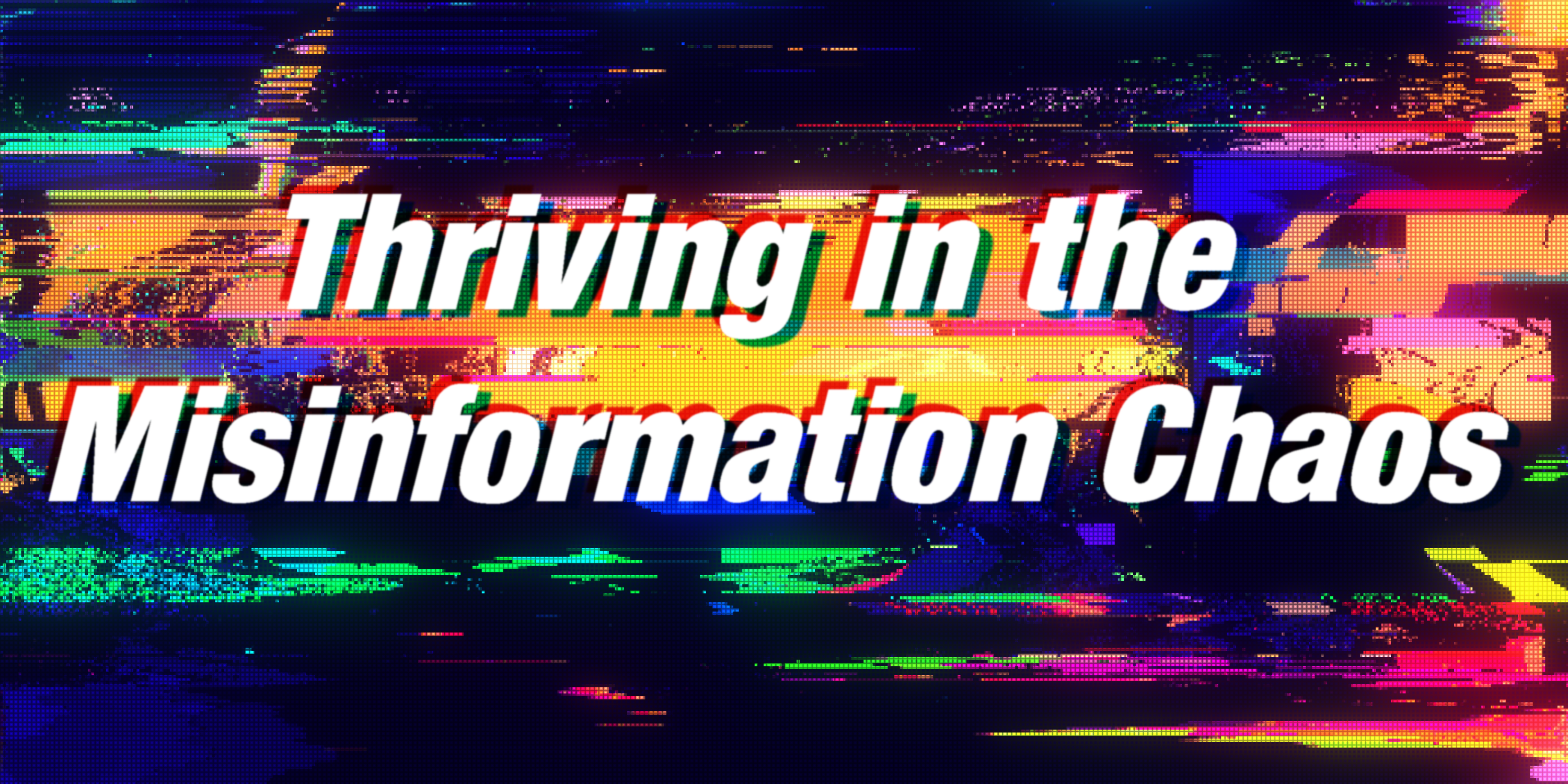Misinformation has been with us as long as the written word, but it has become a very hot topic in the last few years. Inaccurate medical information can even be deadly during a global public health crisis. The library profession’s traditional response is to promote information literacy – the ability to find and interpret relevant and high-quality information. Two academic librarians propose a more succinct definition in their book Learner-Centered Pedagogy – “thinking well about things that matter.”
On the surface, information literacy skills look easy to learn and teach. The CRAAP test is a simple and practical tool. More resources are included in our Finding and Evaluating Information LibGuide. Anyone looking to dive deeper can check out a guide to information literacy from our collection.
But how can we think well and encourage others to do so in such a polarized political environment where generally reliable sources are too often disparaged or ignored? The best research and recent events point to three best practices that will help you filter out false and misleading content while also empathizing and maintaining relationships with ideological opponents. Along with our information literacy resources, the recommended books and audiobooks will give you tools and background information to help you model the change you would like to see in the world. Many other worthy titles are available. We welcome your recommendations in the comments.
Understand what sets an expert apart.
When the authority of experts in their respective fields is not recognized, it is impossible to move past the “a” for “authority” in the CRAAP test. Too often the general public misunderstands how expertise is earned and its limitations. Experts’ very well-publicized mistakes have not helped. Self-appointed “experts” help far-fetched theories gain traction when they claim expertise in an area that is loosely related at best to their core training and experience. Expanded access to higher education and more available information has brought a lot of good things, but it has also given some of the general public a misplaced confidence to challenge established knowledge.
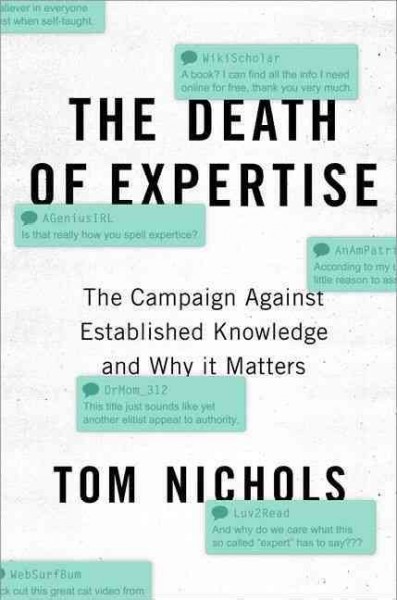
The Death of Expertise: The Campaign Against Established Knowledge and Why It Matters by Tom Nichols
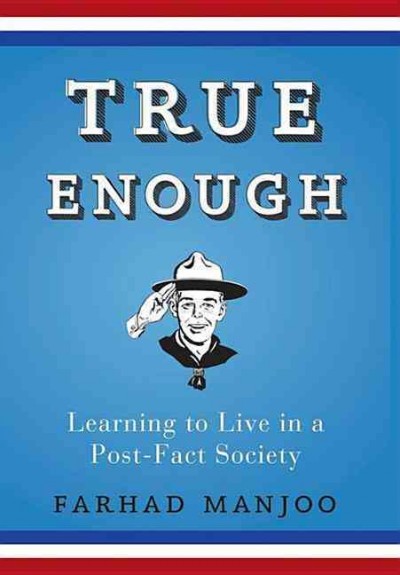
True Enough: Learning to Live in a Post-Fact Society (Also on Hoopla) by Farhad Manjoo
Study how the human mind works.
Our own perspective is shaped by an innumerable number of factors and is more flawed than we might think. Nobody is immune from letting their emotions shape their judgment. This is not to say that everything is subjective, and we should just give up on pursuing the truth because we cannot really know anything. Rather, our limitations should humble us, encourage us to watch for our blind spots and motivate us to better understand those who do not share our views.
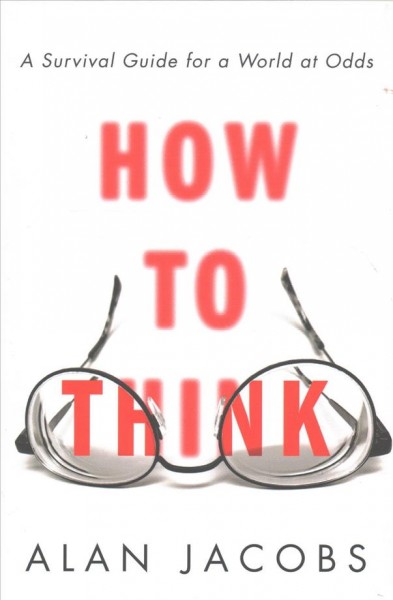
How to Think: A Survival Guide for a World at Odds by Alan Jacobs
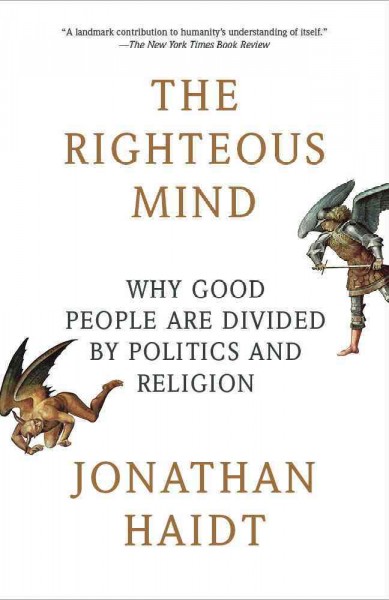
The Righteous Mind: Why Good People Are Divided by Politics and Religion (Also on Hoopla) by Jonathan Haidt
Always use a civil tone.
There will be naysayers even if all your research is on point. Sharpening your language and turning up the volume is unlikely to positively influence anyone. Educators of all kinds and anyone who wants to change the world would do well to remember that our ultimate goal is to serve people. Being right should be only a means to that end. We do ourselves and others a disservice when we forget that we are talking to people who bring their unique and valuable perspectives to every conversation.
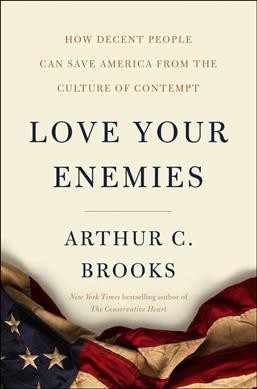
Love Your Enemies: How Decent People Can Save America from Our Culture of Contempt (Also on Hoopla) by Arthur C. Brooks
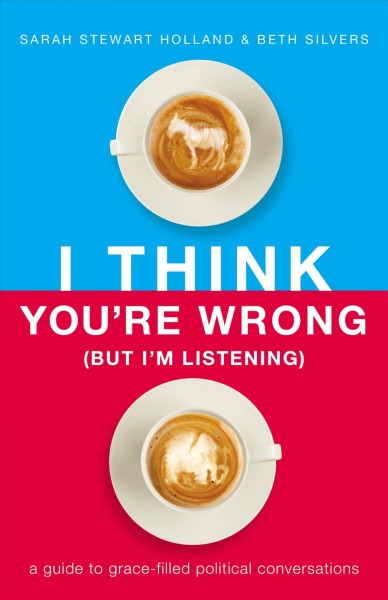
I Think You’re Wrong (But I’m Listening): A Guide to Grace-Filled Political Conversations (Also on Hoopla) by Sarah Stewart Holland and Beth Silvers

